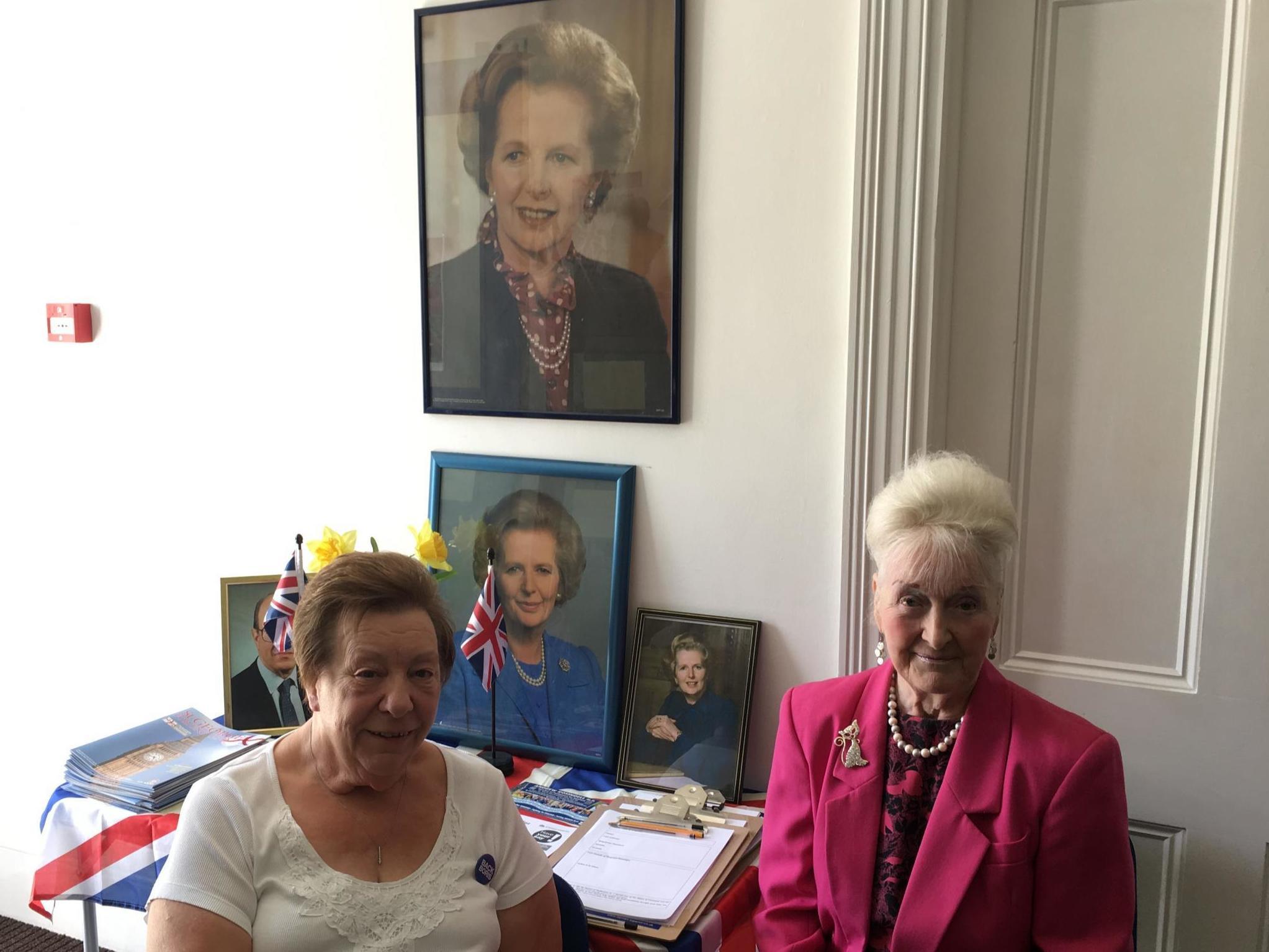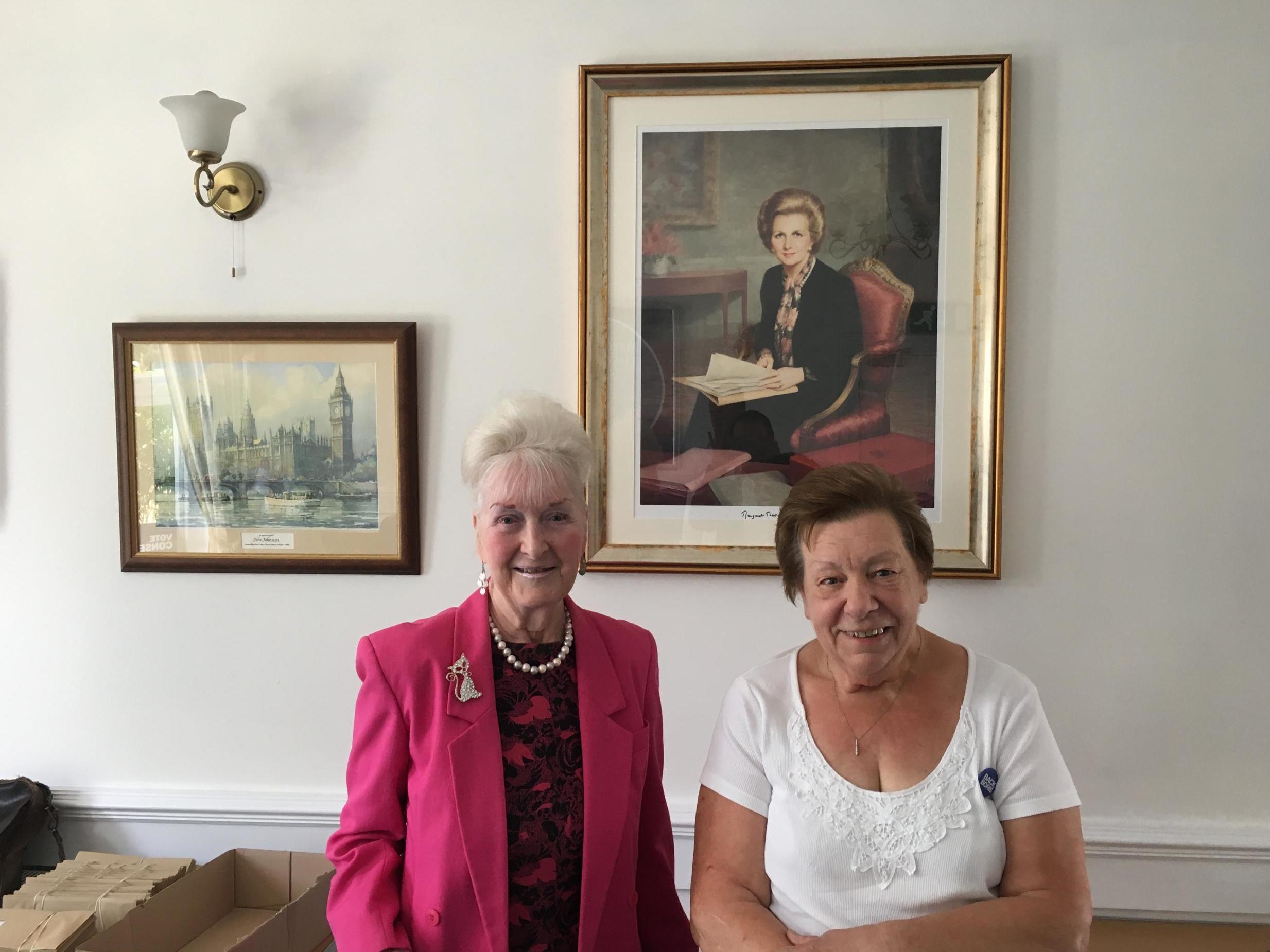‘Well what did we have two world wars for? Fun?’ Leaving the EU is the only issue for Tory leadership voters
There are two names on the ballot papers going out to party members, but at Romford Conservative Association Tom Peck finds neither of their policies matter – just Brexit


Your support helps us to tell the story
From reproductive rights to climate change to Big Tech, The Independent is on the ground when the story is developing. Whether it's investigating the financials of Elon Musk's pro-Trump PAC or producing our latest documentary, 'The A Word', which shines a light on the American women fighting for reproductive rights, we know how important it is to parse out the facts from the messaging.
At such a critical moment in US history, we need reporters on the ground. Your donation allows us to keep sending journalists to speak to both sides of the story.
The Independent is trusted by Americans across the entire political spectrum. And unlike many other quality news outlets, we choose not to lock Americans out of our reporting and analysis with paywalls. We believe quality journalism should be available to everyone, paid for by those who can afford it.
Your support makes all the difference.We are crying out for a strong person. It is their strength that we are seeking. Boris offers that. We want someone strong. We haven’t had a strong leader since Margaret Thatcher. Boris is the nearest and the best. He is a strong man. He is a heavyweight.”
Linda Owen, who is 81, says these words while framed by a proscenium arch of Margaret Thatcher photographs on the wall beside her. She is sitting inside Margaret Thatcher House, as Romford MP Andrew Rosindell has renamed his constituency office in what is technically east London but spiritually very much Essex.
She is sitting at a table draped in a Union Jack, next to a door held open by a cast-iron doorstop of a bulldog in a Union Jack coat. Two 15ft flagpoles mark the entranceway – one another Union Jack, the other a flag of St George.
Linda is one of roughly 160,000 people who, over the next two weeks, will exercise their right to choose the country’s next prime minister. She has brought her voting slip with her. It is fair to say the weight of the decision, between the two names on the paper, has not borne down very heavily upon her.
The same is true for Sue Connolly, 71, the Romford Association secretary and Mr Rosindell’s constituency secretary. There is little point asking who she intends to vote for. She has a “Back Boris” badge on her top, and she’s just finished handing out three more to everybody else in the office, one of whose work overalls and branded polo shirt intimate he is there in a maintenance, rather than political, capacity.
“Oh I’ll be voting Boris. Big time. Big time. Jeremy Hunt’s a Remainer. You can’t vote for a Remainer. We’ve already had one, and Hunt’s just Theresa May in trousers. We can’t have all that again,” she says.
For the last two weeks, Johnson and Hunt have gone all over the country, and done several media interviews, putting the same case, over and over again, to anyone who’ll listen. Sue and Linda’s bluntness cuts through all of it.
Hunt vs Johnson is a straightforward Leave vs Remain proxy war. In this room at least, there is nothing Jeremy Hunt’s latter-day Brexit evangelism can do to move the dial and nor, for that matter, can Johnson’s many and ongoing gaffes. It is all already priced in.
“Boris is a heavyweight,” says Linda. “Any little blunders we forgive him for, totally, but I can’t honestly think that he’s made that many, although we probably only want to see the best. But he’s a heavyweight. Jeremy Hunt is a lightweight.”
Get us out, prorogue parliament, do what you like. Get us out
“He’s not going to leave without a deal,” says Sue. “He’s only said that to get our votes. He’s a Remainer. He’s not got his heart in it. Theresa May didn’t have her heart in it. And he’s just hung himself with this fox hunting crap. I mean, what’s all that about? He’s made himself look a complete and utter idiot.”
The factors that inform their decision would horrify Remainers. They appear to inhabit a world that almost anyone who voted Remain would struggle to comprehend. Linda talks of holidays to villages in Normandy, where “everyone has heard of Boris”. In these Normandy villages, she says, the French like Boris, “because the EU fear him. The French don’t like the EU, they are very revolutionary at the moment. The EU fearing Boris is something they are pleased about.”
Sue sees Brexit as the first domino in the EU’s eventual collapse, an outcome that can’t come soon enough. “Once we go, all the others that want out will follow,” she says. “That’s why they’ve made it so difficult. Once we’re out it starts the roll. The whole thing is a shambles, it’ll all break up.”
And getting out, on 31 October, is all that matters. The spending commitments, the other policies, of either candidate, do not weigh a feather in the balance.
She has complete disdain for the “650 people in Westminster scuppering what 17.5 million people voted for”. The ones that “have gone against their constituents wishes should be deselected. They should be out.”

She says this, of course, from inside the office of one of 34 Tory MPs who refused to back Theresa May’s deal, which would have taken the UK out of the EU on 29 March, as promised. She hopes Boris Johnson will ultimately take us out with a deal, but “not that one”. That one, currently, is the only one on offer.
That wasn’t a proper deal. We don’t want anything to do with Europe, other than trade. The EU started off just as trade, the common market. Then it morphed into an undemocratic dictatorship. French and Germans, telling us what to do. Well what did we have two world wars for? Fun?”
French and Germans, telling us what to do. Well what did we have two world wars for? Fun?
The free trade deal with the EU that Brexiteers like to claim Ms May turned down does nothing to solve the impossible problem of the Irish border. But the idea that Brexit, and specifically, no-deal Brexit, might break up the union, is “crap, total crap”. Sue thinks it’s “Project Fear Four”, the previous ones being “the crap Cameron put through everyone’s letter box, the Article 50 crap. ‘There’ll be no food, you’re all going to die.’ Absolute crap. We don’t believe any of it. It’s not going to happen. Getting out will be the best thing that’s ever happened to this country. We’ll put the flag up and say, ‘Thank Christ for that’.”
Millions, if not billions of words have been written over the last three years about the causes of Brexit. A divided nation, areas left behind, the London bubble, all the rest of it. But the single biggest and simplest cause has a tendency to be overlooked, not least as so many people simply cannot stomach it.
It is a straightforward loathing of the European Union and its institutions, felt with furious intensity. It is a loathing that is deeply coloured by the Second World War. And yes, precious few people are still around who fought in it, but the postwar generation are profoundly shaped by it, and what it did to their parents’ lives. There is a tendency for younger people to glibly overlook and devalue these fierce emotions. It is counterproductive.
“There is this feeling that we’ve lost our identity,” Linda says. She is not young, but she is fiercely articulate. She is well-informed about politics, and she is anything but stupid. She spent 22 years working at Carl Zeiss research, the world-leading optical lens manufacturers.

“We were the postwar generation. My parents went through two world wars and they were horrified at the EU. Your identity is sapped out of you. And in the end, you don’t feel any pride in your own country. It’s our identity, and it will get worse and worse and worse.”
Linda, like a huge percentage of all older generations that have ever lived and are yet to live, is not fully convinced by the youth of today. But her particular generation is rare in that it has been given the opportunity to express this view through the medium of a huge decision about the country’s constitutional arrangements and future direction.
“As postwar children we had nothing, we only had what we worked for. You struggle and you get things,” she says, beginning a story all too familiar to anyone who has seen The Four Yorkshiremen comedy sketch, which is itself 52 years old. “When you see what’s happening now, all these youths, with their hats, and their sweatshirts, with Stussy on it. I had one come to my house to fix the boiler. He looked at my house and said, ‘You’re lucky.’ I said, ‘Luck had nothing to do with it.’ It’s all there for you to grab, but you have to grab it. I said, ‘Look at your trainers, they must be worth a hundred pounds.’ We were lucky just to have a pair of shoes.”
When asked what any this has to do with the European Union, she replies with real indignation. “Everything. Everything! It’s got everything to do with the EU. We have gone without too much, to now be piled into a big melting pot with everybody else. We want our identity. It’s what our forefathers worked for. The UK. England. It’s ours. We don’t want to be told, by them, what to do and what not to do, and paying a hell of a lot of money to do it. Everything is about them telling us, and our independence going. It’s like an elderly couple, coming to the point at which they are asked, ‘Do you want help?’ And they say ‘no’. We want our independence. And they’ll slave on. They want their independence. It is an instinct.”
Sue’s concerns are more immediate. “If Boris doesn’t pull it off, by 31 October, the Conservative Party is finished.” On the desk in the office is a big pile of voting intention surveys she has sent out around the constituency. Lots of them have come back, “Ukip last time, Brexit Party next time.” One person has written in the comments, “Get us out or I’ll never vote Conservative again.” The same sentiment is expressed on several others.
“We’ve got to leave,” says Sue. “We’ve got to. It’s s*** or bust.”
The Conservative Party, throughout its long history, has one defining trait, and that is a ruthless appetite for power over any kind of ideological principle. That stuff is for the left. Brexit, in many ways, was a temporary aberration. For lots of Conservatives, it was a matter of high principle, more important than power, more important even than the party itself.
But now, those two competing principles have fallen into line. For the vast majority of voters in this miniature election, Brexit is both worth it for its own sake, and it is also, quite clearly, a matter of survival. That is a deadly combination, and it will deliver Boris Johnson to Downing Street by an overwhelming margin. Quite what Margaret Thatcher would have made of it all, alas, we cannot know.
Join our commenting forum
Join thought-provoking conversations, follow other Independent readers and see their replies
Comments